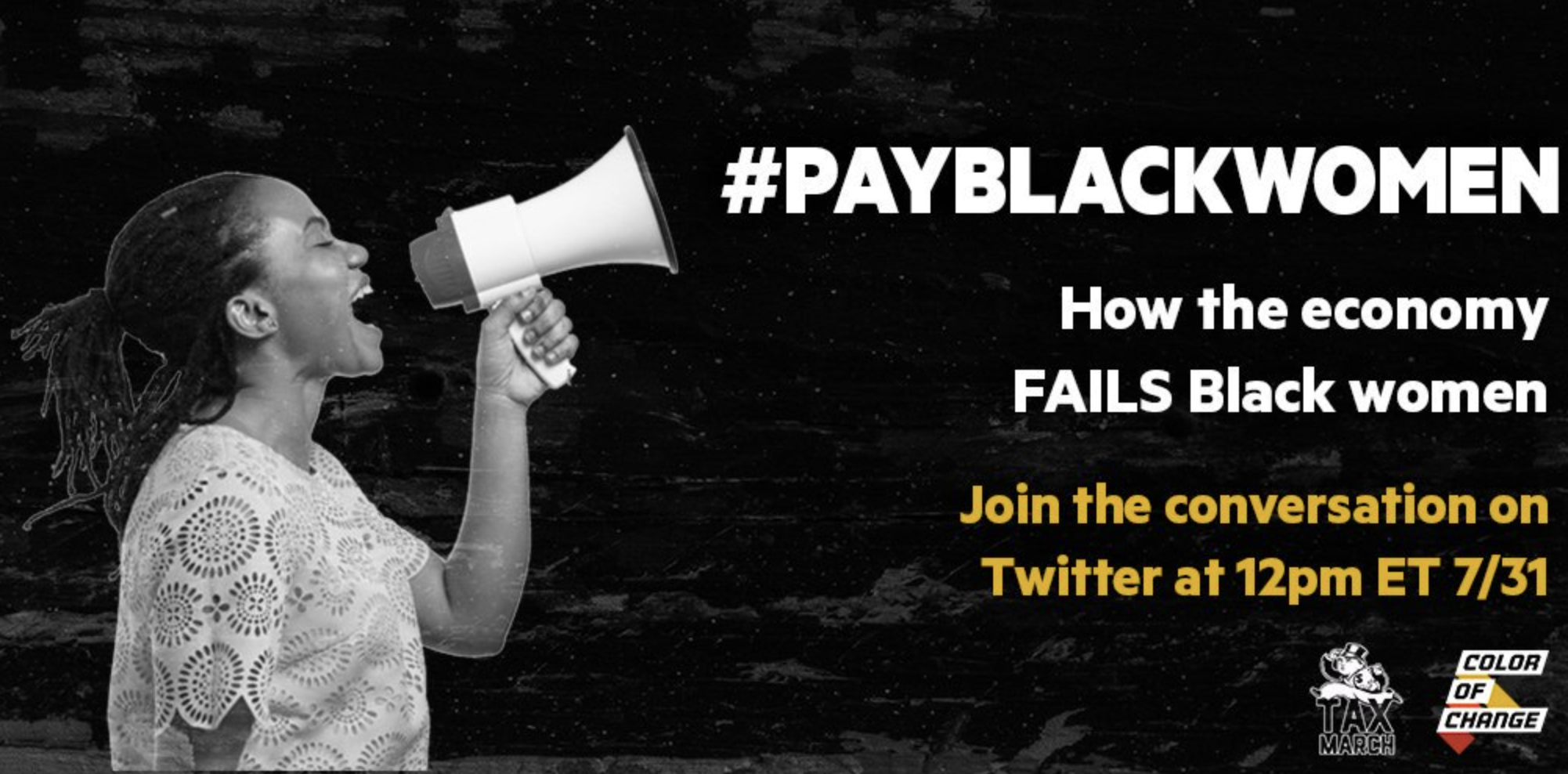#PayBlackWomen trends on Twitter

The hashtag #PayBlackWomen trended this week as authors, nonprofit organizations, elected officials, and social media influencers joined forces to highlight the income inequality and high unemployment rates affecting African-American women.
“Black women are the backbone of our communities and are often the breadwinners of our families, but Black women earn only 67 cents per dollar compared to white men,” said Christine Bennett, a spokeswoman for NY Rep. Yvette Clarke, in a statement to The Hill.“In short, black women aren’t getting nearly as much out of our economy as they’re putting into it.”
The Twitterstorm began with activist Leslie Mac, who came up with the hashtag#PayBlackWomen on Tuesday. It soon went viral, becoming one of the 10 most-discussed topics in the United States for the day. Congresswomen, nonprofit leaders, and everyday Twitter users joined in the conversation, and many Black women shared stories of their experiences in the workforce.
The wage gap is only part of the equation when it comes to the economic inequality experienced by Black women. Racial groups are not equally represented in all sectors of the economy, and Black women are more likely than their white counterparts to end up in low paying, insecure, unsalaried jobs. There’s also the wealth gap at play. Black women with a college degree aged 60or older have a median wealth of $11,000. Compare that to the $384,400 median wealth for white women of the same age and educational attainment. These inequalities take an especially heavy toll on Black women given that 80 percent are the sole or primary breadwinners of their families, according to a June 2017 report.
In addition to facing greater economic challenges than almost any other group, Black women are also vastly underrepresented in leadership roles. As of September 2017, there were zero African-American women running Fortune 500 companies. There are only 18 Black women in the House of Representatives, and only one Black woman is currently serving in the Senate. This underrepresentation in leadership roles is even present in industries typically dominated by women, including education. As of 2014, Black women made up only 1 percent of U.S. school superintendents, according to data published by the American Association of University Women.
During Tuesday’s Twitterstorm, many Black women shared their experiences of discrimination in the workforce, including sexual harassment, idea theft, and being labeled a “diva” or a “bitch.”
“Being labeled ‘difficult to work with’ or ‘has a bad attitude’ because I've always set boundaries with coworkers when it comes to my personal life,” recounted one participant. “Being passed over for promotions that went to white Latinx with much less experience.”
Several activists expressed concern about how Black women could be impacted by the Supreme Court’s June ruling in Janus v. AFSCME, which prohibited public-sector unions from forcing employees to pay union fees.Angela Hanks, a Black woman who works at the anti-poverty nonprofit Center for Law and Social Policy, tweeted that “collective bargaining is important for all workers, but especially workers who experience discrimination in the labor market.”
More articles by Category: Race/Ethnicity
More articles by Tag:



























